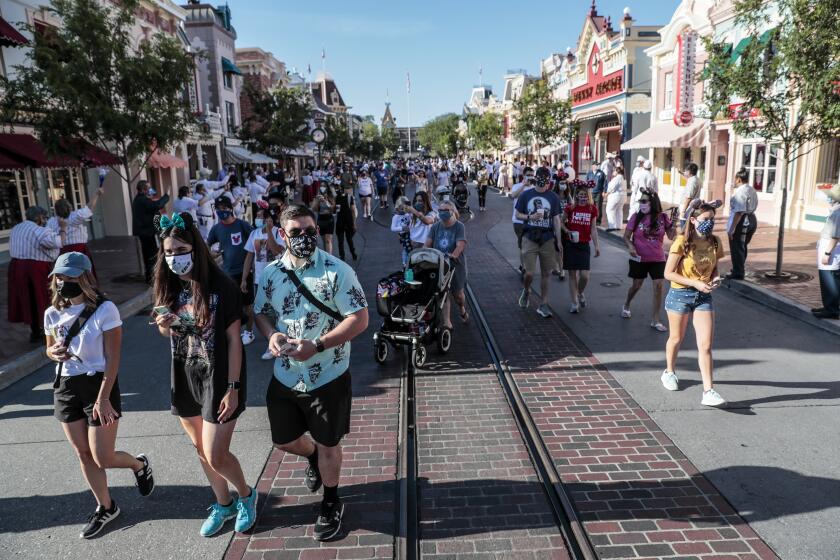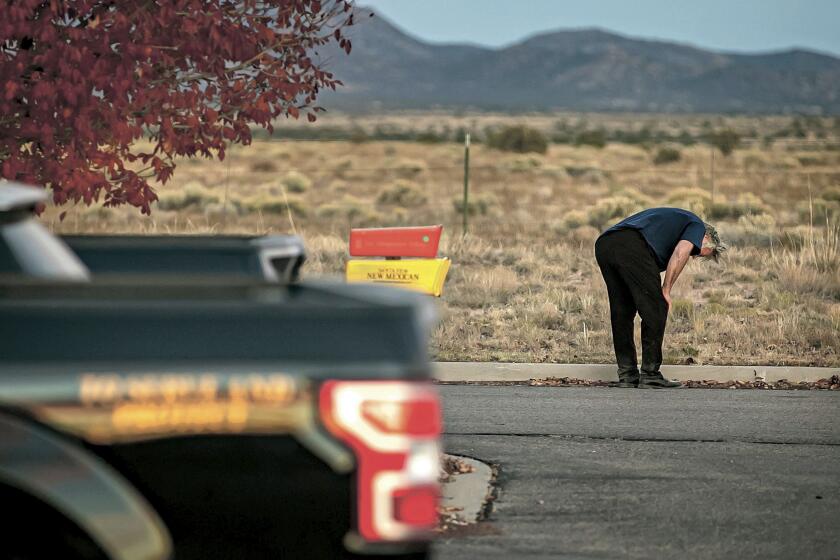Famed Universal Studios lot will add soundstages as film and TV production surges
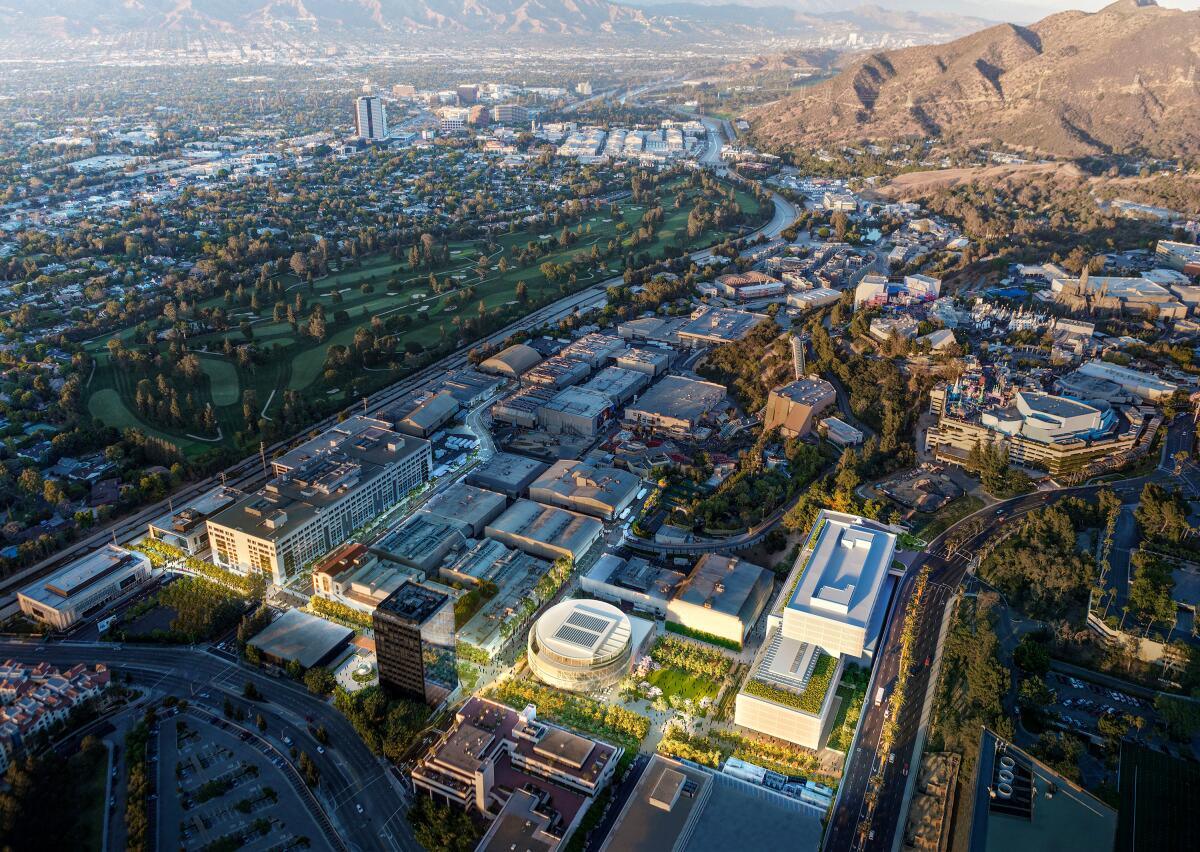
- Share via
With soundstages at a premium as movie and television production surges in Los Angeles County, NBCUniversal will build eight new stages as part of a major development to boost production at its famed Universal Studios lot.
The company’s announcement Tuesday comes as independent movie lot operators and other old-line studios, including Warner Bros., launch projects that will add new soundstages and other facilities to serve the run-up in production boosted by the rapid growth of streaming services such as Netflix, HBO Max and Amazon Prime Video.
“NBCUniversal is doubling down on its commitment to producing content in Los Angeles,” said Michael Moore, president and general manager of West Coast studio operations.
NBCUniversal representatives didn’t put a price tag on the soundstage project but noted that the company would invest $1 billion across the studio lot in the next five years.
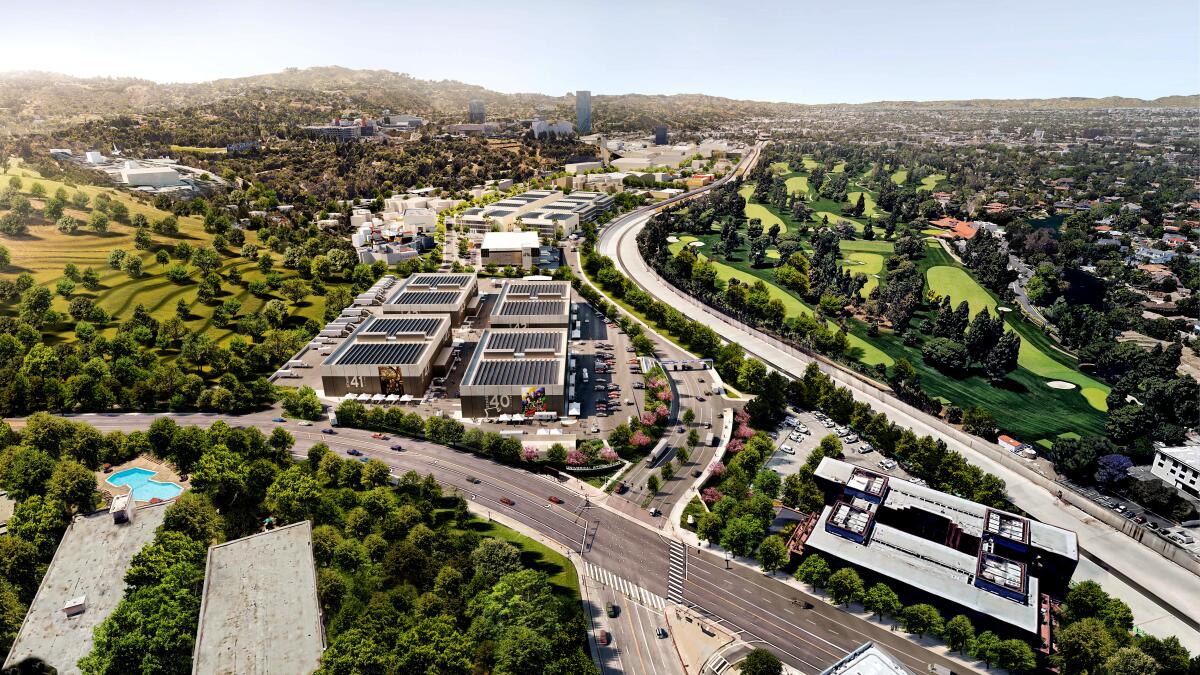
Good news for theme park fans: Wait times have dropped at Disneyland and California Adventure Park compared with before the pandemic.
The century-old studio along the Hollywood Freeway is one of the world’s best-known entertainment factories, where movies and television shows have been created for generations and thousands of visitors tour on trams annually. Its adjoining Universal Studios Hollywood theme park, which includes the Wizarding World of Harry Potter, is one of the region’s top tourist attractions.
NBCUniversal needs to expand and upgrade its production facilities to meet demand, which has been growing for years but was turbocharged by the pandemic, Moore said. People stuck at home craved entertainment, much of which is made in Southern California.
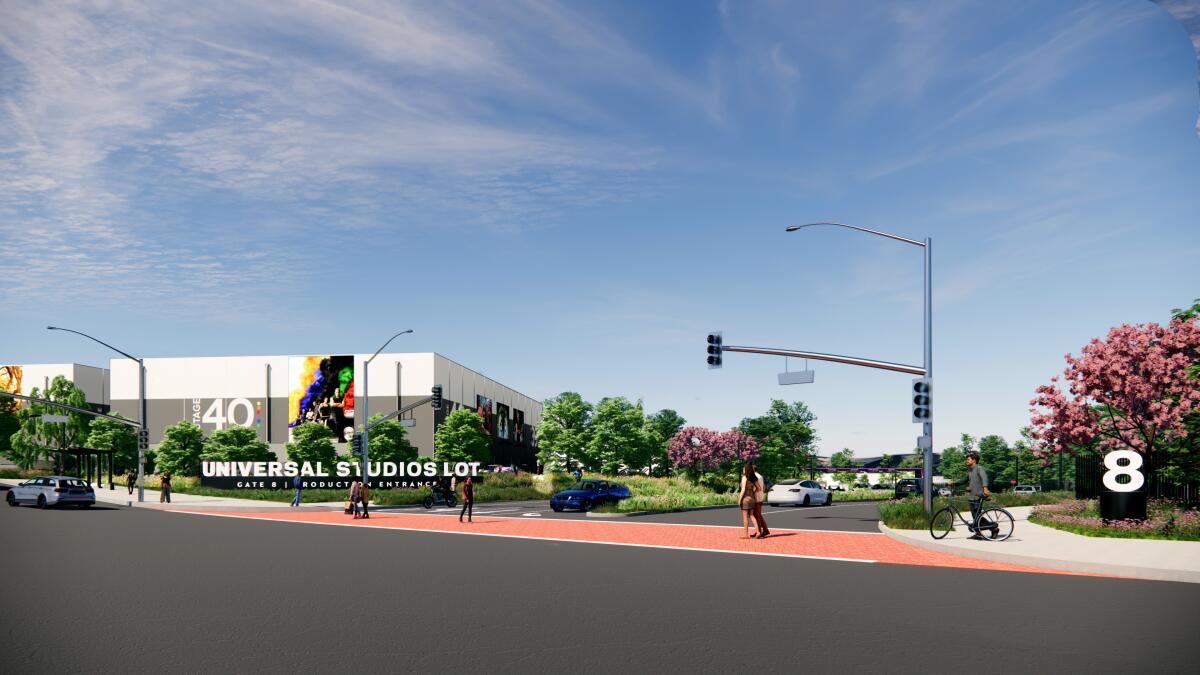
Plans call for building eight soundstages off Barham Boulevard by next summer, bringing the total number of stages on the lot to 37. The new stages designed by Bastien & Associates Inc. will have rooftop solar panels that will allow Universal Studios to reduce its reliance on the power grid during peak hours of electricity use.
Grading of the hillside where the new soundstages will stand is complete. By moving dirt from a hillside to a flat surface, the space for new stages was expanded from 8 acres to 12 acres. Outside the stages will be room for production basecamps, where trucks, equipment and actors’ trailers are placed.
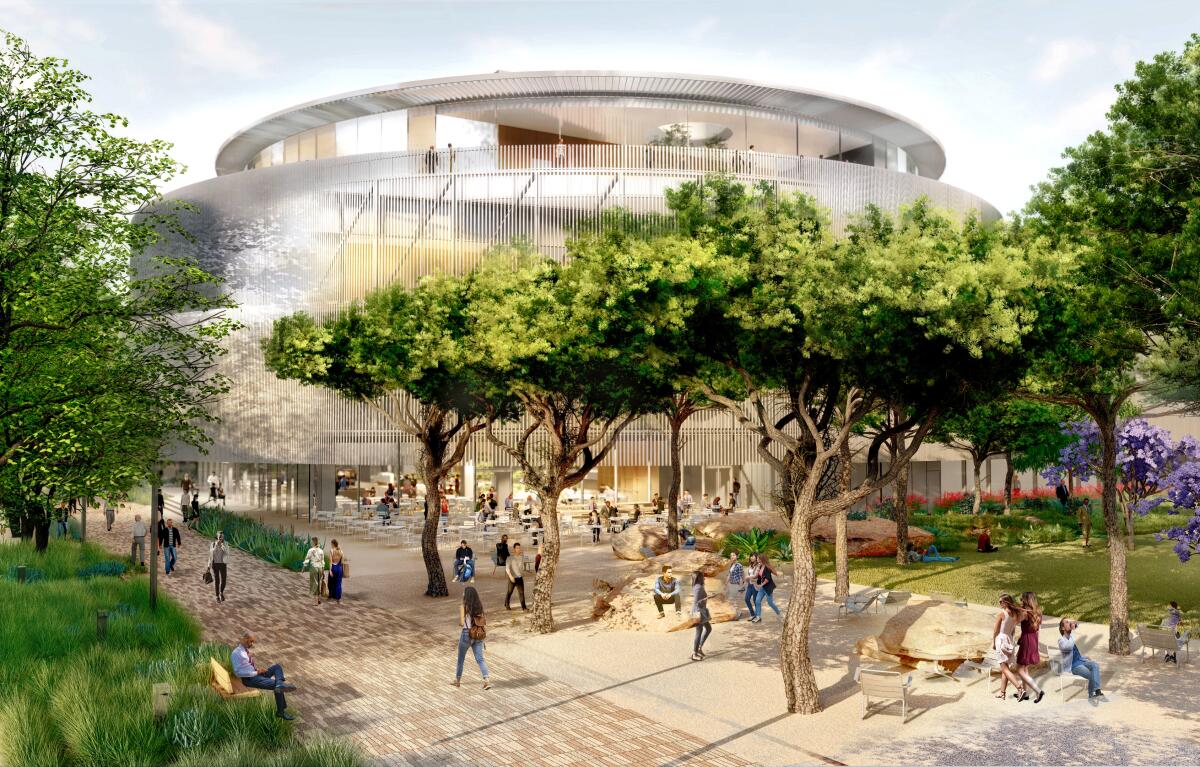
“We’re creating more acreage out of what was previously unusable land,” Moore said.
The earliest soundstages at Universal date from 1915, when films were silent.
The new soundstages are part of an ongoing upgrade of the lot. Work started in 2020 on an 11-story office building with 350,000 square feet that will be used to house creative businesses that work at the studio. The office complex off Lankershim Boulevard will be completed in 2023.
A new employee center with a commissary, sit-down restaurant, theaters and event space will replace the existing commissary and former screening rooms and will also be ready by late 2023, NBCUniversal said. The center and the office were designed by Lever Architecture of Portland, Ore.
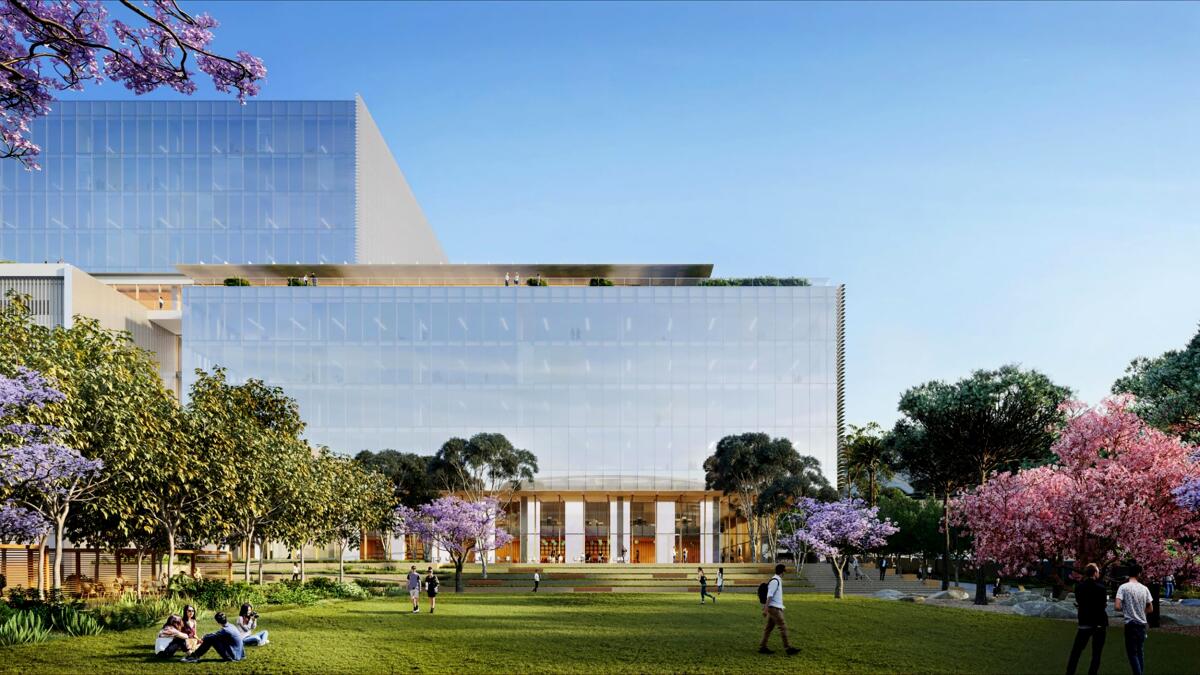
An insatiable demand for new TV shows has helped drive a rebound in filming in the first quarter of 2021.
Nearing completion is a new theater-like sound-mixing facility, which will be used for post-production. It will replace the existing post-production facility where the new employee center will stand.
Soundstages are one of the hottest categories in commercial real estate as entertainment production keeps rising. The surge in video-on-demand streaming provoked “an insatiable appetite” for media-oriented real estate such as studios and offices, according to real estate brokerage CBRE.
New demand for big entertainment-related spaces comes from old-line entertainment companies and newcomer streaming services such as Netflix, Apple TV+ and HBO Max.
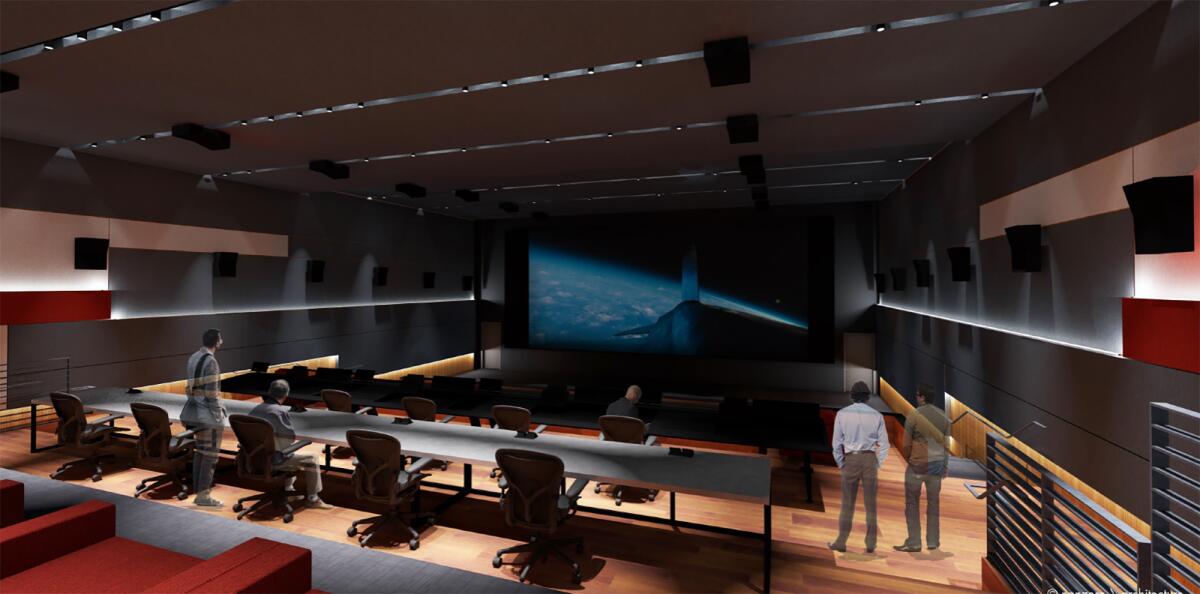
The Los Angeles area already ranks as the world’s leader in soundstage capacity with more than 5.2 million square feet of certified space, FilmLA data show. Local soundstages have remained leased during the pandemic; location shoots, which had dwindled to a trickle during the worst months of the pandemic, are mounting a comeback.
Last month Warner Bros. announced that its historic Warner Bros. Ranch satellite studio in Burbank will be redeveloped with 16 new soundstages.
Warner is selling the lot but will rent the redeveloped lot from entertainment real estate landlord Worthe Real Estate Group, which will own the lot with San Francisco investment firm Stockbridge.
A new movie studio in the Sun Valley neighborhood of Los Angeles that will have seven soundstages was announced in July by Hudson Pacific Properties Inc., one of the country’s biggest studio operators. Its Sunset Glenoaks Studios is expected to be completed in late 2023 in an industrial district on Peoria Street near Glenoaks Boulevard.
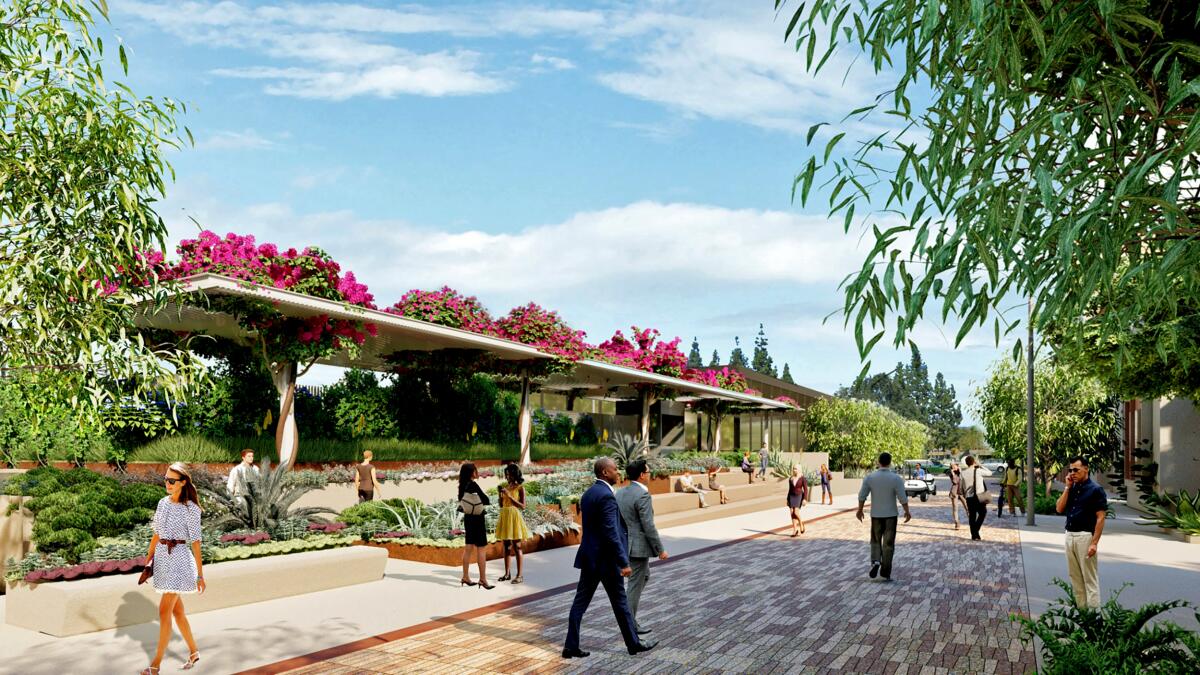
Interviews with multiple members of the “Rust” crew paint an hour- by-hour picture of a cascade of bad decisions that created a chaotic set on which a lead bullet was put into a prop gun.
Other recently announced studio projects include a $650-million plan to build 17 soundstages on a site now occupied by the Los Angeles Times printing plant on Olympic Boulevard in an industrial neighborhood in downtown Los Angeles. The Times’ landlord, Atlas Capital Group, intends to develop the parking lot around the printing plant in the near future and eventually take over the 1980s-era building and turn it into stages. The Times may extend its lease there into the 2030s.
Los Angeles real estate developer David Simon intends to build a $450-million independent studio in Hollywood with five soundstages and support facilities, including offices and bungalows for entertainment creators. It would be called Echelon Studios and would replace a long-closed Sears store and parking lot on Santa Monica Boulevard west of the 101 Freeway.
Hackman Capital Partners, the owner of Television City, formerly operated by CBS, announced plans in March to make $1.25 billion worth of improvements to the Los Angeles lot, including raising the number of soundstages to at least 15, from eight, along with production support facilities and offices for rent.
Unlike independent studios that rent space to entertainment creators, NBCUniversal is an owner-user, Moore said. “We’re investing in the experience of the users of this production and business community here on the campus.”
More to Read
Inside the business of entertainment
The Wide Shot brings you news, analysis and insights on everything from streaming wars to production — and what it all means for the future.
You may occasionally receive promotional content from the Los Angeles Times.
